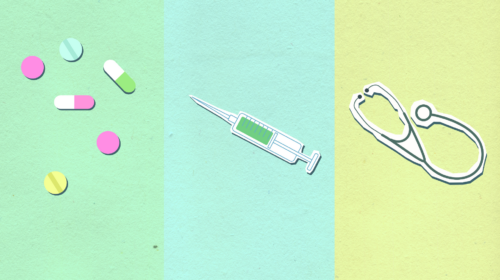Telehealth and addiction treatment have become more closely linked during the COVID-19 pandemic. When pervasive public safety concerns have upended how people interact with their providers, telehealth and virtual treatment sessions have stepped in to fill an urgent need, whenever possible, to help with seamless continuity of care.
While not every aspect of healthcare can be administered in a remote setting, the rapid acceleration of telehealthcare delivery spurred by the pandemic has shown us that the clinical insights, guidance, and support services that patients receive during in-person appointments can often translate to virtual sessions; this is especially true for the type of services offered in intensive outpatient (IOP) and other types of behavioral rehab. If you’re considering telehealth for addiction treatment, here are some things you need to know before starting.
What Is Telehealth Addiction Treatment?
In short, telehealth is the delivery of health-related care, support, or information through electronic communication and telecom technologies. In the context of addiction treatment, telehealth represents a model of care through which clients can access counseling, support, advice on MAT, and a variety of other vital components of their care programs through their computers or smartphones. Telehealth goes beyond actual patient treatment and can be used for intake and ongoing patient monitoring. Some of the primary types of tech-based assets used in telehealth for addiction treatment include:
- Computerized Screenings and Assessments
- Telephone and Video-Based Recovery Supports
- Telephone and Video Conferencing-Based Therapy
- Texting Appointment Reminders
- Mobile Apps for Post-Treatment Recovery
- Recovery Support Chats
While the addiction treatment field has been historically slow to integrate telehealth services into its care paradigm, there are currently more options than ever to help you or your loved one get the help you need for addiction from anywhere in the world.
How Does Telehealth for Addiction Treatment Work?
Like general care plans, the telehealth treatment and support experience will vary based on clients’ immediate treatment needs, where they are in their care journey, their clinical and lifestyle preferences, and, of course, their facility’s resources. Depending on where you go for care, your telehealth experience may be confined to filling out your screening and assessment form on a secure mobile portal.
A more meaningful and robust way of leveraging telehealth services, however, is by offering online recovery meetings, virtual group, and individualized counseling, video-based clinical support for addiction-related medical and medication issues, and more. There are multiple video-conferencing apps like Zoom that have made connection with your care provider easier than ever. Generally speaking, you can arrange an appointment with your doctor’s “front desk” staff who will send you a secure, one-click link to join your doctor in a private video session at a designated time.
You can speak with them as you would in their office, and if you need immediate clinical intervention, they can coordinate entry into an emergency care facility. Other useful modes of telehealth in addiction treatment include supportive and informative text messaging during and after treatment to help you stay connected with your care team and on the right track in recovery.
How Does Telehealth Help in Addiction Treatment?
Even if COVID-19 concerns were to diminish significantly, telehealth for addiction treatment would still address needs unrelated to pandemic-related gathering concerns. There is still a glaring need for tools that can connect people suffering from addiction with virtual care resources. Just for a few examples, video-conferencing can help patients who are too sick or unable to come in for an in-person session; people can go to their chosen treatment center without worrying about traveling; and virtual care plans administered through text-based engagement can help with medication adherence and offer emotional support to prevent relapse. Virtual therapy sessions can also help people suffering from co-occurring disorders, like anxiety, agoraphobia, or depressive disorders.
Recovery Unplugged offers multiple tiers of telehealth addiction treatment services to help you or your loved one get the care you need during the pandemic and beyond. Don’t let fear or anxiety stop you from getting treatment and support. Contact us to learn more about our telehealth services for addiction treatment.

























